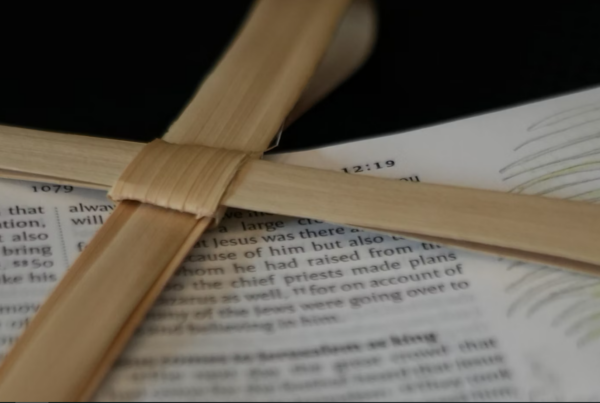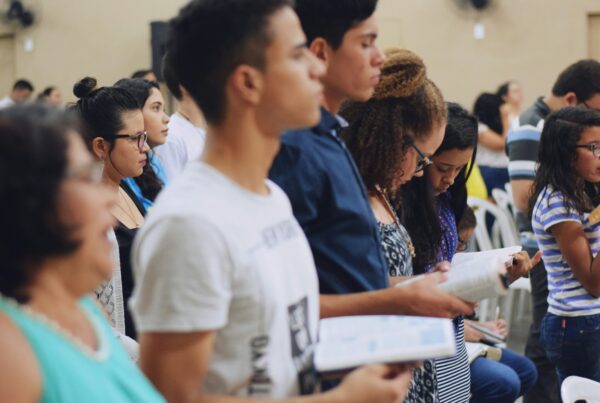I grew up in the Reformed Church in America, and I remember enjoying my Sunday school classes and Thursday night catechism classes. There were many delightful women who taught those classes, and I remember them as knowledgeable and kind, and they always smelled good.
As I aged into high school Sunday school classes, I had male elders who were my teachers. Frankly, it was clear that these male elders did not enjoy teaching, but apparently no one else wanted to teach the high school kids. I wasn’t sure I blamed them. Many of my classmates were mildly rude or sullen and silent.
There was one exception among the teachers. The senior pastor, who also happened to be my dad, loved to teach the senior high school students. Since my dad was the senior pastor, I experienced the added pressures of being required to know everything about the Bible and of behaving with perfect morals in every time and situation. I did not enjoy those expectations, but I did embrace my faith and my church.
Eventually, I made the decision to make profession of faith, a public statement professing my trust in Jesus as my Lord and Savior. In preparation, I was paired with a mentor, who was an elder at our church, as well as a cherished family friend. I loved those talks with John, and I felt loved and cared for and felt a sense of belonging to my church and my faith. I treasured those times.
Related: How I’ve Come to See the Church as a Warm Nest of Community and Belonging
As part of this process, I was asked to articulate my faith journey. As I reflected, I noticed that, outside of my own family and mentor, John, it was largely women who shaped and nurtured my faith development. My wonderfully warm and caring catechism teachers, my cool junior high teacher with her Z Cavaricci jeans and blue mascara, and the kind and faithful women who mentored me as I babysat their kids. All these women showed me Christ’s love.
I also noticed that the women in my church were incredibly faithful. They taught most of the Sunday school classes and catechism classes, and they cared for the wee ones in the nursery. They brought meals to people with new babies or to people with illnesses or recovering from surgeries. They organized all the suppers and fundraisers at the church, and made the food for funerals, festivals, and youth group.
In contrast, I noticed that the men were the visible leaders, as elders and deacons and pastors, and that the women were the invisible leaders who did most of the actual service work of the church. Apparently some others had noticed this imbalance, too, and it was just a few years later, when I was away for college, that my home church elected their first female deacon. Many people responded positively to the idea, and others reacted with strong negativity. I was very hurt and angered by those negative reactions. These women were the ones that faithfully served me, alongside some men. Why was their service not considered leadership? I began to ask questions about the nature of leadership and the roles of men and women in the church. As a college student studying history, it was only a matter of time before I began to find answers and more questions.
Related Bible study: Building God’s Church Together: God’s Vision for Flourishing Ministry Partnerships Between Men and Women
The Reformed Church in America has claimed the idea of being “Reformed and always reforming.” This phrase perfectly captures the experiences of living as a follower of Christ in the twenty-first century. We take our faith and doctrines seriously, but we also know that over time, people ask different questions. Some congregations had conversations about women in leadership in the mid- to late twentieth century, but within my home church, that conversation happened decades later.
As a denomination, we recognize that people change, our society changes, and the church changes over time, so the idea of staying Reformed and tied to our beliefs and doctrines makes sense, as we also seek to figure out how to live out our faith and doctrine in a different and changing world.
Related: Why the Heidelberg Catechism Is Still Relevant in Life and in Death
For me, personally, I have also had a journey that is Reformed and reforming. I keep and question my own faith and Reformed tradition, while also seeing the changes in my spiritual journey. I still ask lots of questions about the roles of gender in the church and the nature of leadership. As a professor of history at Northwestern College, an RCA-affiliated institution, I teach about the history of religion in the United States, about gender roles, and about identity. But I’ve also listened to college students of the Gen Z generation, who ask different questions about faith, authenticity, and identity. I believe that our denomination’s faith tradition is robust, and it can handle the next generation’s questions and concerns, just as it handled my questions about the nature of leadership and women in my formative years.
Moving forward, let’s continue to invite the questions about what it means to be Reformed and also remember to appreciate the ways that our faith can keep reforming, answering new questions about life in the twenty-first century.
Rebecca Koerselman
Rebecca Koerselman teaches history at Northwestern College and is a member of American Reformed Church in Orange City, Iowa. She is also currently serving on the Reformed Church in America's Commission on Christian Education and Discipleship



